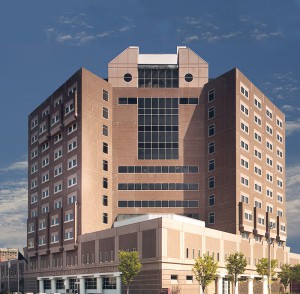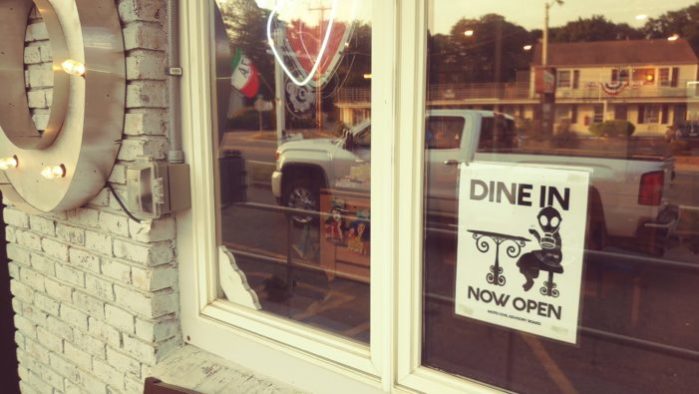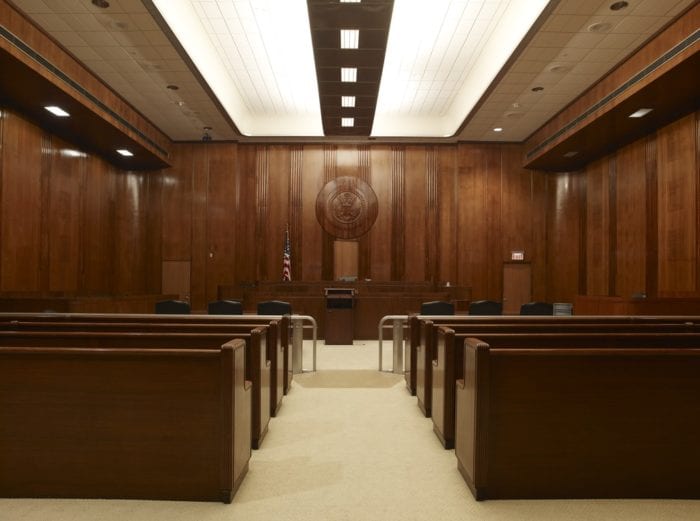“The emergency orders do not unconstitutionally burden the plaintiffs’ right to free assembly because reducing the dangers of COVID-19 is a significant government interest”
 LOCAL
LOCAL
While whiny anti-maskers clutch their pearls over civil liberties and pandemic precautions, John Vasquez Diaz is sitting in Nashua Street Jail in Boston waiting to find out if he will be able to confront his accuser while facing drug charges.
Vasquez Diaz has a single charge of trafficking more than 200 grams of cocaine. He has no priors, though he lacks a high school education and does not speak English. He filed a motion to suppress evidence from what he believes is an untrustworthy witness, but the judge has ordered a hearing to consider the motion and is mandating that it take place over Zoom, which means Vasquez Diaz will have to watch from a laptop (or, in the event he gets bailed out, the tiny screen of a smartphone).
“The witness never has to look at the defendant,” Vasquez Diaz’ attorney said in front of the Supreme Judicial Court on Dec 7. “Our appeals court has said that any proceeding that allows a witness to testify without having to look at the defendant just doesn’t suffice.”
In May, DigBoston writer Jean Trounstine reported on an April response to a lawsuit pursuing decarceration during the pandemic in which Suffolk County District Attorney Rachael Rollins warned against constitutional rights being violated by video proceedings. Rollins cited cases involving rape victims having the right to see their accuser and family members not having access to proceedings, writing, “Now, due to the trial court’s inability or refusal to adapt or evolve technologically, our victims and family members of victims, the public, and defendants are being excluded from the process.”
The justices of the SJC seemed skeptical about the difference between an in-person hearing and a remote one via Zoom, but they also seemed willing to allow Vasquez Diaz to waive his right to a speedy trial and postpone the hearing until COVID-19 rates drop.
Vasquez Diaz said that he was willing to remain in jail until an in-person hearing could be safely held, but in this case the DA’s office appears more concerned with not letting the pandemic get in the way of its conviction rates.
“Conducting pretrial hearings remotely is something that must be done in order to move the wheels of justice forward,” Suffolk Assistant District Attorney Cailin Campbell said before the SJC.

STATE
The SJC has yet to rule on the validity of Zoom hearings, but the state’s highest court did rule, on Dec 10, that Gov. Charlie Baker’s pandemic public gathering restrictions do not violate the state Constitution.
The National Civil Liberties Alliance led the legal action on behalf of the plaintiffs, which included the owners of hair and tanning salons, restaurants, an entertainment complex, and two church pastors.
The NCLA has been supporting legal action against social-distancing orders across the country during the pandemic, while also challenging the legitimacy of the CDC’s eviction moratorium. In Mass, the NCLA argued that Baker’s use of the Civil Defense Act to declare a state of emergency was illegitimate.
“The Civil Defense Act is a Cold War-era statute designed to protect the Commonwealth from foreign invasions, armed insurrections, and destruction associated with fires, floods, earthquakes, and similar cataclysms. It has never before been invoked in a health emergency,” the NCLA said in a released statement when their case reached the SJC.
The plaintiffs also argued that the emergency orders infringed on the right to free assembly. Essentially, people who were desperate to hit the tanning salon or pump iron in a crowded gym were no longer allowed to freely express themselves.
The SJC was not convinced.
“The emergency orders do not unconstitutionally burden the plaintiffs’ right to free assembly because reducing the dangers of COVID-19 is a significant government interest, and because the emergency orders are content neutral and narrowly tailored, and they leave open alternative channels of communication,” Justice Elspeth Cypher wrote in a unanimous decision.

NATIONAL
Regardless of the Bay State’s ruling, a pair of churches in Nevada and California are hoping the Supreme Court of the United States overturns limits on religious gatherings in their respective states following a similar ruling against New York regulations.
The court had actually already ruled against the two churches in similar petitions last summer. Since that time, Justice Ruth Ginsburg passed away and the Republican-led Senate rushed to confirm Justice Amy Coney Barrett, shifting the court to the right.
The new conservative majority ruled against the New York governor’s capacity limit for places of worship.
In concurring opinions, Justices Neil Gorsuch and Brett Kavanaugh argued that churches should be treated as “essential businesses,” without getting into the economic implications of their reasoning.
“According to the Governor, it may be unsafe to go to church, but it is always fine to pick up another bottle of wine, shop for a new bike, or spend the afternoon exploring your distal points and meridians. Who knew public health would so perfectly align with secular convenience?” Gorsuch wrote.
Although Kavanaugh specifically noted that New York’s regulations were tougher than the ones in Nevada and California, he left room to also argue that attendance caps of any sort are improper. With petitions before the court, we may soon see if that was his intent.
Zack is a veteran reporter. He writes for DigBoston and VICE, and formerly reported for the Boston Courant and Bulletin Newspapers.

